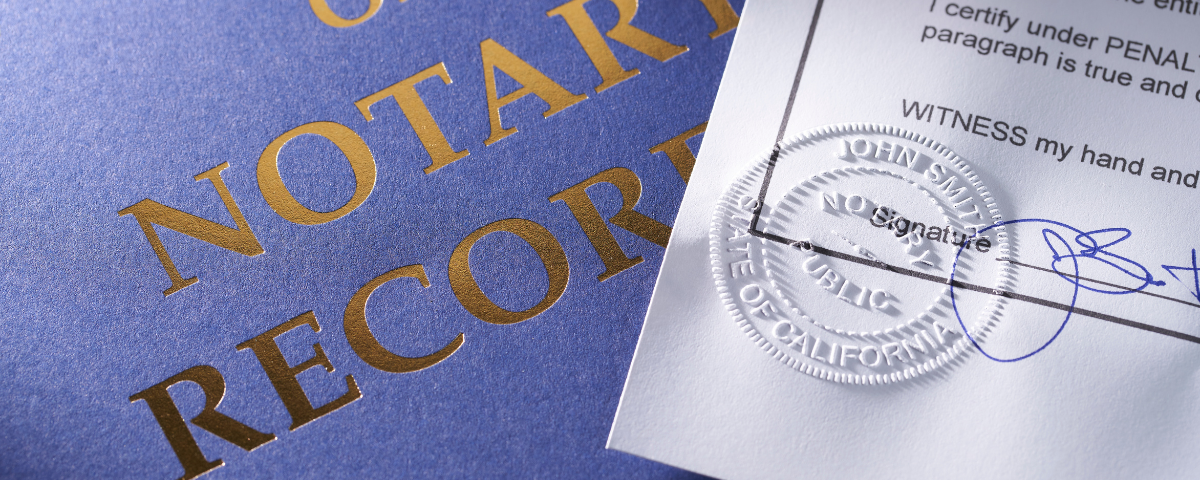Are you wondering where to get something notarized? Getting something notarized can be a puzzle, but it doesn’t have to be. This commonplace task often leaves people bewildered, searching high and low for a solution.
Notarization holds the power to transform an ordinary document into a legally binding agreement, but tracking down a notary can feel like searching for a needle in a haystack.
Fear not, though! The mysteries of notarization are about to be revealed. From the familiar walls of a bank to the doorstep convenience of mobile notaries, the options are diverse. So, take a sip of your coffee and let’s delve into where to get something notarized together!
Where to Get Something Notarize
When you need to get a document notarized, you’ve got options. You can head to your local bank, swing by a UPS store, visit a law office, or even use a mobile notary service. And if you’re really in a bind, you can always notarize documents online. But with so many choices, where do you start?
The document notarization process can be a daunting task. You want a reliable, affordable, and convenient notary public, and you need to ensure they follow the proper procedures to make your document is legally binding. From years of experience, it’s clear that finding the right notary can be a challenge. But what if you had access to trustworthy notaries who make the process smooth and hassle-free?
Banks, UPS Stores, Law Offices, Mobile Notary Services, Online Notary Services
First things first, let’s break down your options. Most banks and credit unions offer notary services, often for free or at a low cost. UPS stores are another popular choice, with many locations offering notary services during business hours. If you need legal advice along with your notarization, a law office might be the way to go. And if you’re short on time, a mobile notary service or online notary platform can come in clutch.
Of course, each option has its pros and cons. Banks are convenient if you’re already a customer, but they might have limited hours or require an appointment. UPS stores are pretty much everywhere, but they can be pricey. Law offices offer expertise, but they’re not always the most budget-friendly. Mobile notaries are handy, but they might charge extra for travel. And online notary services are fast and easy, but they’re not available in every state.
So, how do you choose? It really depends on your specific needs and preferences. If you’re looking for the cheapest option, a bank or credit union is probably your best bet. If you need something notarized ASAP, an online notary service might be the way to go. And if you have a complex legal document, a law office can provide some extra peace of mind.
No matter which route you choose, just make sure to do your research and find a reputable local notary service. Check reviews, compare notary fees, and don’t be afraid to ask questions. A good notary will be happy to walk you through the process and make sure everything is done by the book.
Banks and Credit Unions
Tired of searching high and low for a reliable notary service? Look no further than your local bank or credit union. Many financial institutions offer notary services to their customers at a fraction of the cost – or even for free.
One of the biggest advantages of using a bank notary is convenience. If you already have an account with the bank, you can simply walk in and request notary services during regular business hours. Some banks even allow you to schedule an appointment in advance, so you can avoid waiting in line.
Checking with Your Bank
Before you head to your local bank branch, it’s a good idea to call ahead and confirm that they offer notary services. Not all banks have a notary on staff, and some may only offer limited hours or require an appointment.
When you call, be sure to ask about any specific requirements or restrictions. For example, some banks may only notarize certain types of documents, or they may require that you be an account holder to use their notary services.
Fees for Notary Services
While many banks offer free notary services to their customers, some may charge a small fee. This fee can vary depending on the bank and the type of document being notarized, but it’s usually much lower than what you’d pay at a UPS store or shipping center.
If your bank does charge a fee, it’s typically around $5-$10 per signature. However, some banks may waive the fee altogether if you have a certain type of account, such as a premium checking account or a business account.
Scheduling an Appointment
Before heading to the bank, it’s a good idea to book an appointment for notary services. This way, you’ll avoid lengthy wait times and be guaranteed a notary when you need one.
To schedule an appointment, simply call your bank or visit their website to see if they offer online scheduling. Some banks may require you to come in person to make an appointment, while others may allow you to schedule over the phone or online.
Before you schedule your appointment, consider what type of document needs notarization and how many signatures are required. This way, the notary can prepare accordingly, making the process much smoother for everyone involved.
One thing to keep in mind is that not all banks have a notary available at all times. Some may only offer notary services on certain days of the week or during limited hours. Be sure to check with your bank ahead of time to avoid any surprises.
Signing documents at a bank can be a convenient and affordable option, especially if you’re already a customer. To make the process smoother, research beforehand and gather all necessary documents and identification.
The UPS Store Notary Services
If you’re in a bind and need to get a document notarized quickly, The UPS Store might be just what you’re looking for. With over 5,000 locations across the United States, chances are there’s a UPS Store near you that offers notary services.
One of the biggest advantages of using The UPS Store for notarization is convenience. Most locations have extended business hours, including weekends, so you can get your document notarized on your own schedule. Plus, you don’t need an appointment – just walk in and ask for notary services.
Location and Hours
To find a UPS Store near you that offers notary services, simply visit their website and use the store locator tool. Enter your zip code or city and state, and the tool will show you a list of nearby locations along with their hours of operation.
Most UPS Stores are open Monday through Friday from 8am to 6:30pm, and Saturday from 9am to 5pm. Some locations may have extended hours or be open on Sundays, so be sure to check with your local store for their specific hours.
Cost of Notarization
The cost of notarization at The UPS Store varies by location, but it’s generally around $5-$15 per signature. Some stores may charge a flat fee for the first signature and a reduced fee for additional signatures, while others may charge per signature regardless of how many there are.
It’s important to note that the notary fee is separate from any other fees you may incur for printing, copying, or faxing your document. Be sure to ask about all fees upfront so you know exactly what to expect.
Required Documents
When you visit The UPS Store for notarization, be sure to bring all necessary documents with you. This includes the document that needs to be notarized, as well as a valid form of identification such as a driver’s license, passport, or state-issued ID card.
If you’re notarizing a document that requires witnesses, you’ll need to bring them with you as well. Most states require that witnesses be physically present at the time of notarization and that they also provide valid identification.
It’s also a good idea to bring any other supporting documents that may be required for your specific type of notarization. For example, if you’re notarizing a power of attorney document, you may need to bring proof of your relationship to the person granting the power of attorney.
Before you visit The UPS Store, it’s a good idea to call ahead and ask about their specific requirements for notarization. Some stores may have additional requirements or restrictions on the types of documents they can notarize.
When you need documents notarized quickly, The UPS Store can be a lifesaver. Just remember to bring all the necessary papers and identification, and don’t hesitate to ask for clarification if you’re unsure about anything.
Law Offices and Legal Service Providers
Getting a document notarized can be a bit of a mystery, but did you know that law offices and legal service providers can be a huge help? They’re especially useful when you have a tricky legal document that requires some extra guidance or know-how.
Working with a law office for notarization gives you an added layer of confidence. Lawyers and legal service providers have in-depth knowledge of notarization requirements, ensuring your document is accurately executed and legally binding.
Finding Local Law Offices
If you’re interested in using a law office for notarization, the first step is to find a local provider that offers this service. You can start by searching online for “law offices near me” or “notary services near me,” or by asking for recommendations from friends, family, or colleagues who have recently had a document notarized.
If you’re having trouble finding the right legal representation, consider reaching out to your local bar association or legal aid society. They often have directories of law offices and service providers in your area, and may be able to point you in the right direction based on your specific needs.
Notarization Fees
The cost of notarization at a law office can vary widely depending on the complexity of your document and the level of service you require. Some law offices may charge a flat fee for notarization, while others may bill by the hour.
If you need notarization, expect to pay a premium at a law office compared to a bank or UPS store. But that extra cost might be worth it if you require legal guidance or expert advice on your document.
Before you choose a law office for notarization, be sure to ask about their fees upfront. Some offices may require a retainer or deposit before they begin work on your document, while others may bill you after the fact.
Scheduling an Appointment
Most law offices require an appointment for notarization services, so be sure to call ahead and schedule a time that works for you. When you call, be prepared to provide some basic information about your document and what type of notarization you need.
When you meet with the notary, they’ll carefully examine your document to make sure it meets all the legal requirements. They might also ask you to show some ID or sign a few papers in front of them.
If you’re feeling unsure about the notarization process, just ask. A reputable law office will be more than happy to walk you through each step and address any concerns you might have.
When you need to get documents notarized, law offices might not be the first place that comes to mind. However, they can be a fantastic resource for complex legal documents. Just remember to do your homework, ask about fees upfront, and bring all necessary documents and identification to the table.
And remember, whether you choose a law office, bank, UPS store, or mobile notary service, the most important thing is to work with a reputable provider who can ensure that your document is properly signed, notarized, and legally binding. With a little bit of research and preparation, you can find the right notary service to meet your needs and give you peace of mind.
Mobile Notary Services
In today’s fast-paced world, sometimes it’s just not possible to make it to a physical location to get a document notarized. That’s where mobile notary services come in handy. With a mobile notary, you can have a notary come to you, whether you’re at home, at work, or even in a hospital bed.
On-the-go individuals and those with limited mobility are turning to mobile notary services for a convenient alternative to traditional notary services. With flexible scheduling and a willingness to accommodate last-minute requests, these services have become a lifesaver for many.
How Mobile Notaries Work
The process of using a mobile notary service is relatively straightforward. First, you’ll need to find a reputable provider in your area. You can start by searching online for “mobile notaries near me” or asking for recommendations from friends or colleagues.
Once you’ve found a provider, you’ll need to contact them to schedule an appointment. Most mobile notary services require at least 24 hours’ notice, but some may be able to accommodate same-day requests for an additional fee.
To make the most of your appointment, be prepared to share essential details with your notary, including the type of notarization needed and the number of signatures required. Also, don’t forget to provide the address where the notarization will take place.
On the day of your appointment, the mobile notary will arrive at the designated location with all the necessary supplies, including a notary stamp and journal. They’ll review your document to ensure that it meets all legal requirements for notarization, and may ask you to provide identification and/or sign certain documents in their presence.
Key Takeaway:
When you need something notarized, you’ve got options. Head to a bank or UPS store, visit a law office, use mobile notary services, or even try online notarization. Each has its pros and cons in terms of convenience and cost. Make sure to research your local options for the best fit.
Online Notarization: A New Era of Convenience
Getting a document notarized no longer requires a physical presence. Online notarization has revolutionized the way we execute legal documents, offering a convenient and efficient solution for individuals and businesses alike.
The Benefits of Online Notarization
Online notarization provides numerous benefits, including:
- Convenience: No need to travel to a physical location or wait in line. Online notarization can be done from the comfort of your own home or office.
- Time-saving: Online notarization is typically faster than traditional methods, with many platforms offering instant or same-day service.
- Cost-effective: Online notarization can be more cost-effective than traditional methods, with many platforms offering competitive pricing.
- Increased accessibility: Online notarization makes it possible for individuals with mobility issues or those living in remote areas to access notarization services.
How Online Notarization Works
Online notarization typically involves the following steps:
- Upload your document: Upload the document that requires notarization to the online platform.
- Verify your identity: Verify your identity through a secure and compliant process.
- Meet with a notary: Meet with a licensed notary public in a virtual session.
- Sign and notarize: Sign and notarize your document electronically.
- Download and store: Download and store your notarized document securely.
Security and Compliance
Online notarization platforms must adhere to strict security and compliance standards to ensure the integrity of the notarization process. Look for platforms that are:
- ESIGN and UETA compliant: Compliant with federal and state electronic signature laws.
- Secure and encrypted: Use secure and encrypted technology to protect sensitive information.
- Audited and certified: Regularly audited and certified by third-party organizations to ensure compliance.
FAQs in Relation to Where to Get Something Notarized
Where is the cheapest place to get a notary?
Your bank or credit union usually offers free or low-cost notary services for account holders.
How do I notarize a document in Nebraska?
You can visit banks, UPS stores, law offices, or use mobile and online notaries available across Nebraska.
How much do most notaries charge?
Notary fees vary by state but typically range from $5 to $15 per signature notarized.
How do I notarize a document in Michigan?
Banks, legal service providers, UPS stores, mobile and online options are all accessible throughout Michigan.
Conclusion
So, there you have it – the inside scoop on where to get something notarized. We’ve explored the notary hotspots, from banks to UPS stores, law offices to mobile notaries, and even the virtual realm of online notarization. No more wandering aimlessly, wondering where to go when you need that official stamp of approval.
Remember, whether you’re signing a life-changing contract or a simple permission slip, notarization is your best friend. It’s the ultimate seal of authenticity, giving your documents the legal equivalent of a superhero cape. So, the next time someone asks, “Where to get something notarized?” you can confidently point them in the right direction.
Now that you’re armed with this knowledge, go forth and conquer the world of notarization! And if you ever find yourself in a notary bind, just think of me as your trusty guide, always ready to lead you to the nearest notary oasis.








 Your Privacy Choices
Your Privacy Choices


